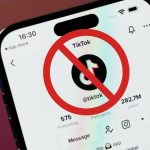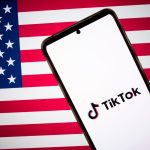There’s no such thing as bad publicity, right?
That, it appears, is how Elon Musk views his Twitter shenanigans in relation to his other company, Tesla.
During an earnings call Wednesday, an investor asked Musk how he planned to mitigate brand damage to Tesla, inflicted (according to some polls) by Musk’s recent political influencing and controversial tweets.
Musk gave an interesting answer. “Let me check my Twitter account,” he said. “I’ve got 127 million followers. It continues to grow quite rapidly. That suggests that I’m, you know, reasonably popular. I might not be popular with some people, but for the vast majority of people, my follower count speaks for itself. I’m the most interacted social media account, maybe in the world, but certainly on Twitter.”
Musk is right about the follower count on his Twitter account increasing fast. But he doesn’t seem to be aware – or he intentionally brushes aside – the fact that his recent actions on Twitter, including re-instating extreme right-wing accounts on the platform, amplifying conspiracy theories, banning journalists from Twitter for no good reason, and abruptly changing the rules on Twitter to the detriment of third-party developers (to name a few), are demonstrably hurting Tesla’s brand.
It also appears that Musk wants us to think that there’s little or no ego involved in this. His use of Twitter, he seems to be saying, is just another way to get people to buy Tesla cars. “I think Twitter is an incredibly powerful tool for driving demand for Tesla, and I really encourage companies of all kinds, automotive or otherwise, to make more use of Twitter, and to use those Twitter accounts in ways that are interesting, and informative, and entertaining, and it will help drive sales, just as it has of Tesla,” he said.
While bragging about his Twitter follower count during a Tesla earnings call is cringy in itself, Musk’s often petty behavior on Twitter (in one case resulting in a lawsuit) shows that his use of Twitter is more than a cold, calculated way to drive Tesla sales. Instead, it’s often Musk’s unfiltered thoughts that turn into tweets, and some of those tweets, such as the infamous “funding secured,” tweet, have the potential to cost Musk and Tesla billions of dollars.
Tweet may have been deleted
(opens in a new tab)
It helps Musk’s case that Tesla’s quarterly revenue was better than expected, having risen to $24.32 billion (compared to $17.72 billion in the same period last year). Income rose to $3.69 billion, a 59 percent year-over-year increase, though shy of analysts’ estimate of $3.8 billion.
But Tesla investors are getting weary of Musk’s focus on Twitter, both in terms of throwing money at it, and spending time on it, and a massive decline in Tesla stock price isn’t helping, either. Even if Musk’s follower count keeps rising, should Tesla’s business start to suffer, Twitter’s “gigantic net value,” as Musk put it, will be called into question.







